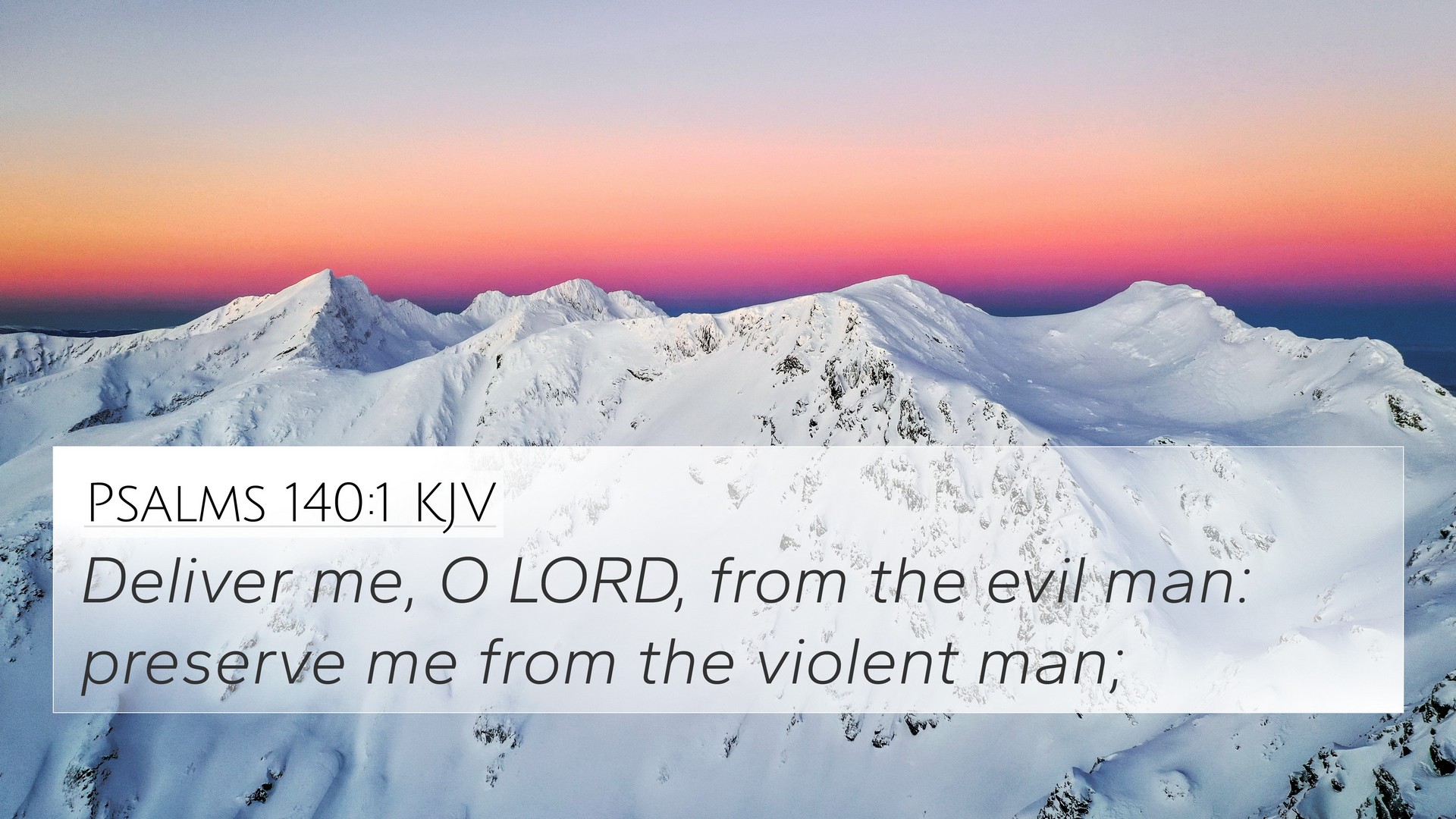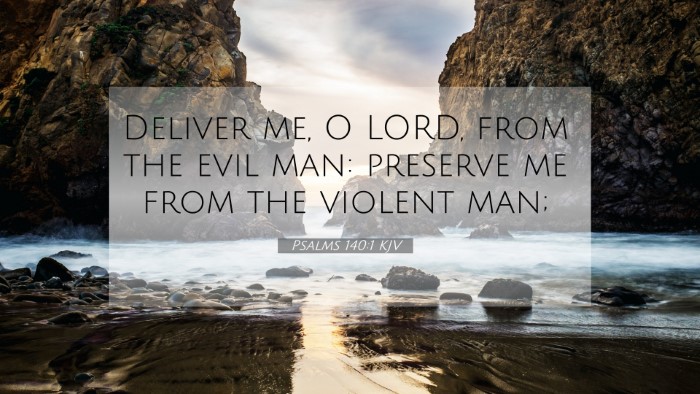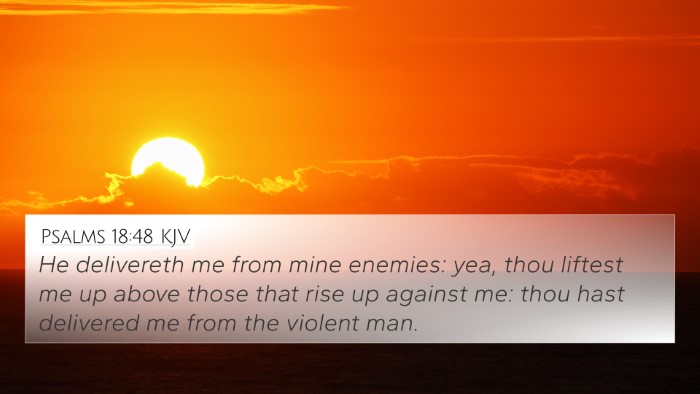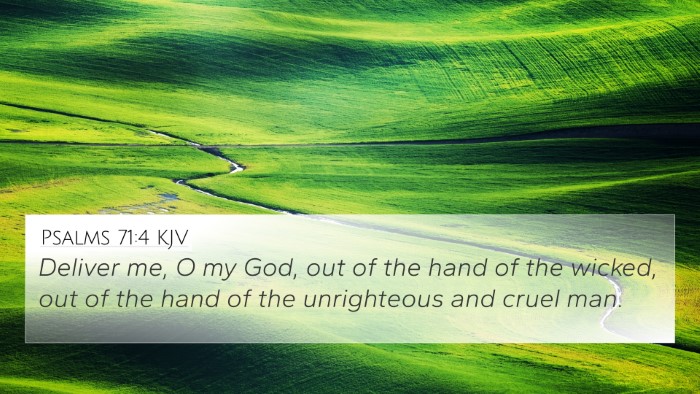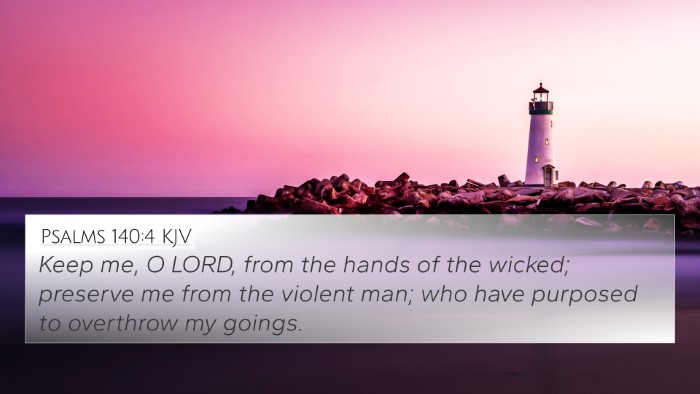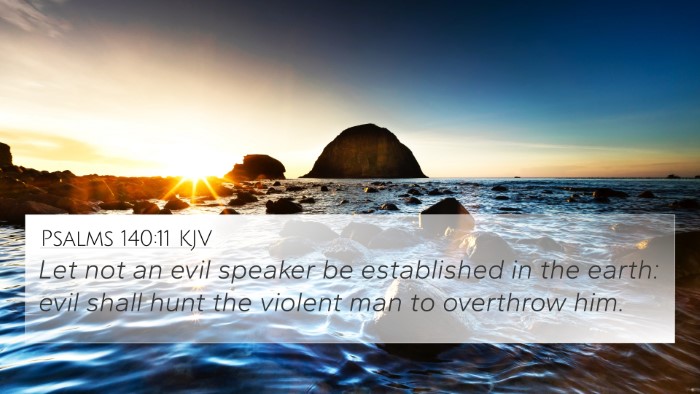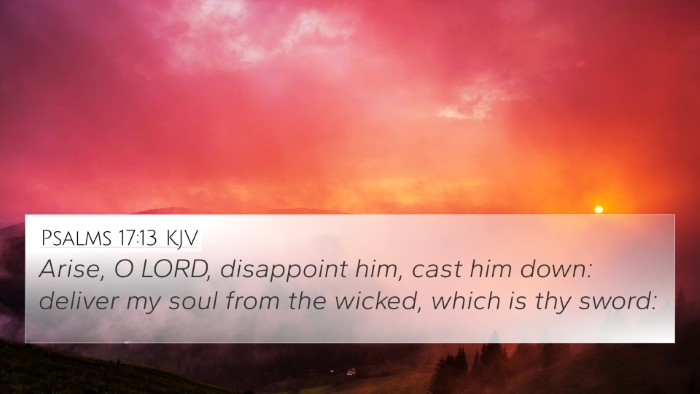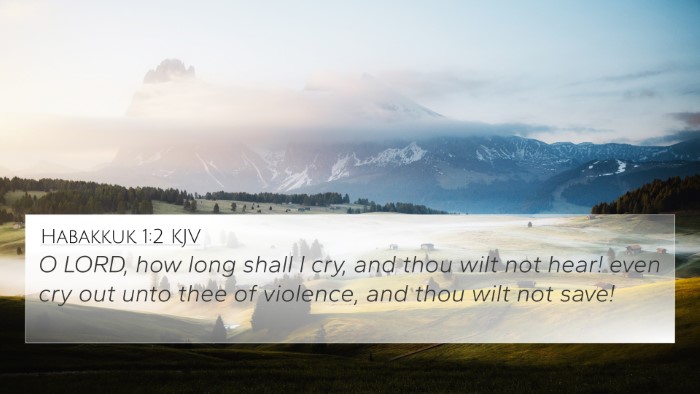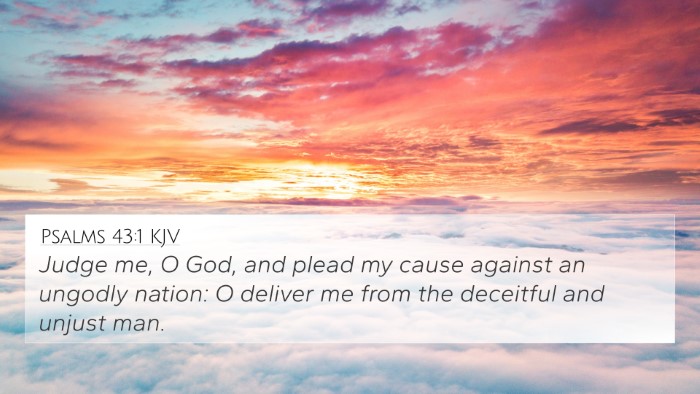Psalms 140:1 - Summary and Commentary
The verse Psalms 140:1 states: "Deliver me, O Lord, from the evil man: preserve me from the violent man." This verse reflects the psalmist's plea for divine protection against malicious individuals and their harmful intentions.
Contextual Understanding
This psalm is attributed to David, who often found himself in peril and sought refuge in God. The context reveals a struggle against adversaries who engage in violence and deceit. The psalm reflects not just a personal lament, but a wider theme of seeking God's deliverance amid injustice.
Commentary Insights
From public domain commentaries, we gather several key insights into the verse:
- Matthew Henry: Emphasizes that David’s request for deliverance indicates a recognition of both the moral corruption of his enemies and the necessity of God’s intervention. Henry notes that this appeal is not only for physical safety but also for spiritual preservation, showcasing a deep reliance on God’s power.
- Albert Barnes: Highlights the "evil man" and "violent man" as symbols of those who oppose God’s will. Barnes suggests that this plea reflects a universal truth of the human condition—facing oppression—and serves as a reminder of the need for God’s protection against evil.
- Adam Clarke: Discusses the nature of evil and violence from a theological viewpoint, indicating that the request for deliverance is not merely situational but is rooted in the understanding of God’s character as a protector. Clarke also draws on historical instances where God delivered His people from tyrants.
Bible Cross-References
Several verses indicate a thematic connection with Psalms 140:1, illustrating the broader scriptural dialogue regarding divine protection:
- Psalm 70:1 - "Make haste, O God, to deliver me; make haste to help me, O Lord." - A similar cry for urgent deliverance.
- Psalm 18:48 - "He delivereth me from mine enemies; yea, thou liftest me up above those that rise up against me." - Reflects God's capability to rescue from adversaries.
- Proverbs 2:12 - "To deliver thee from the way of the evil man, from the man that speaketh froward things." - Indicates the need for discernment and protection against evil influences.
- Psalm 121:7 - "The Lord shall preserve thee from all evil: he shall preserve thy soul." - Affirms God’s promise to protect from all harm.
- 2 Thessalonians 3:3 - "But the Lord is faithful, who shall establish you, and keep you from evil." - New Testament reassurance of God's protective nature.
- Romans 12:19 - "Dearly beloved, avenge not yourselves, but rather give place unto wrath: for it is written, Vengeance is mine; I will repay, saith the Lord." - Encourages reliance on God for justice rather than personal retribution.
- Isaiah 54:17 - "No weapon that is formed against thee shall prosper; and every tongue that shall rise against thee in judgment thou shalt condemn." - Offers assurance of God’s protection against attacks.
- Job 5:19 - "He shall deliver thee in six troubles: yea, in seven there shall no evil touch thee." - Job’s reflection on God’s countless safeguards against evil.
Thematic Connections
The themes that arise from Psalms 140:1 include:
- Divine Deliverance: The overarching plea for help against threats reflects a deep-seated understanding of God’s role as a protector.
- The Nature of Evil: Recognition of the pervasive presence of evil in the world and the need for divine intervention.
- Faith and Trust: The psalmist's dependence on God's power enhances the theme of faith amidst adversity.
Conclusion
In summary, Psalms 140:1 serves as a poignant reminder of the psalmist’s reliance on God against the dangers posed by evil and violent individuals. It offers an opportunity for readers to reflect on their own battles and the continual need for divine protection. Cross-referencing various connected verses not only enriches understanding but also reinforces the biblical assurance of God’s faithfulness and protective nature throughout both the Old and New Testaments.
Further Reflection and Study
For those interested in diving deeper into the connections and themes presented in Psalms 140:1, tools for Bible cross-referencing can aid significantly in establishing links between various scriptures. Utilizing a Bible concordance or cross-reference guide will enhance your Bible study methods and provide a richer understanding of how biblical texts converse with one another. This approach can also facilitate sermon preparation and thematic studies within the context of the scriptures.
